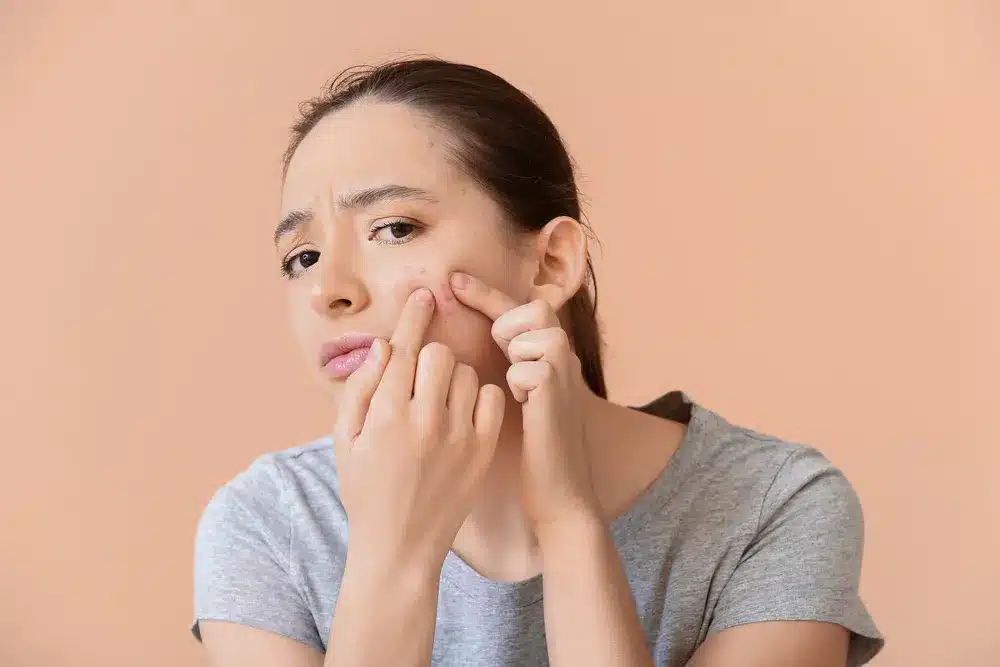Acne is a widespread skin condition affecting millions worldwide. While commonly associated with adolescence, acne can occur at any age and significantly impact self-confidence. This article explores acne’s nature, causes, and potential treatments, while addressing frequently asked questions about various treatment approaches including medications and home remedies.
Understanding Acne
As one of the most common dermatological conditions, acne affects individuals globally with varying severity. While not medically dangerous, acne can be frustrating to manage and may negatively influence quality of life. With proper treatment and consistent skincare, most people can effectively control acne and achieve clearer skin.
What Causes Acne?
Acne develops when hair follicles become clogged with excess oil (sebum), dead skin cells, and bacteria. The skin naturally produces sebum to moisturize and protect itself, but overproduction can combine with dead skin cells to block follicles. When bacteria infect these blockages, they form blackheads, whiteheads, and inflammatory lesions.
Is Acne Genetic?
Research suggests acne has hereditary components. Those with parents who had acne are more likely to develop it themselves. While the specific genes involved aren’t fully understood, they appear to influence sebum production, skin inflammation, and immune responses.
Can Acne Be Cured?
There’s no universal cure for acne as it varies significantly between individuals. Treatment focuses on reducing breakouts and improving skin appearance. While some outgrow acne naturally, others require ongoing management.
Why Is Acne Persistent?
Acne’s persistence stems from its multiple contributing factors and individual variations. Finding effective treatments often requires experimentation, as solutions vary by person. Teenage acne may resolve with hormonal stabilization, while adult acne often needs active treatment.
Age Differences in Acne Treatment
Treatment approaches differ between adolescents and adults. Teen acne typically relates to puberty’s hormonal changes that stimulate excess sebum production. Adult acne may involve different triggers like stress or hormonal fluctuations, requiring tailored treatment strategies.
Managing Severe Acne
Severe acne requires comprehensive management. Consider these approaches:
- Consult a dermatologist
- Establish a consistent skincare routine
- Use prescribed topical treatments like Tretinoin
- Maintain proper hygiene
- Implement stress-reduction techniques
Acne Treatment Options
Below are answers to common questions about various acne treatment methods.
Dietary Approaches
Does Green Tea Help Acne?
Green tea’s antioxidants and anti-inflammatory compounds may reduce acne severity by protecting skin and decreasing inflammation.
Is Honey Effective Against Acne?
Honey’s antibacterial and anti-inflammatory properties can combat acne-causing bacteria and reduce inflammation.
Does Reducing Dairy Intake Help?
Some evidence suggests dairy, particularly milk, may worsen acne due to its hormone content that stimulates oil production. However, more research is needed.
Can a Low-Glycemic Diet Improve Acne?
Low-glycemic diets may reduce acne severity by stabilizing blood sugar and insulin levels, which can decrease sebum production.
Does Exercise Affect Acne?
While exercise benefits overall health, its direct impact on acne is unclear. It may help by reducing stress (an acne trigger) but excessive sweating could potentially worsen breakouts.

Natural Remedies
Are Home Remedies Effective?
Various home remedies may help reduce acne symptoms, though effectiveness varies by individual. Experimentation may be needed to find what works best.
Can Apple Cider Vinegar Help?
Apple cider vinegar’s antimicrobial properties may combat acne bacteria, but its acidity requires proper dilution to avoid skin irritation.
Does Tea Tree Oil Work?
Tea tree oil’s antibacterial and anti-inflammatory properties can help treat acne when properly diluted with a carrier oil.
Is Witch Hazel Beneficial?
Witch hazel may help unclog pores, remove excess oil, and reduce acne inflammation while inhibiting bacterial growth.
Can Aloe Vera Treat Acne?
Aloe vera can reduce acne-related redness and swelling while promoting healing and preventing scarring.
Does Baker’s Yeast Help?
Limited evidence suggests baker’s yeast might benefit acne due to its nutrient content, though overuse may cause irritation.
Nutritional Supplements
Do Fish Oil Supplements Help?
Fish oil’s omega-3 fatty acids may reduce acne inflammation and support skin health.
Can Zinc Supplements Improve Acne?
Some evidence suggests zinc may help with acne symptoms due to its role in skin health and immune function.
Lifestyle Modifications
Does Stress Reduction Help?
Reducing stress may decrease acne severity by lowering hormone-induced oil production.
Is Exfoliation Beneficial?
Gentle exfoliation can help by removing dead skin cells and unclogging pores, but harsh scrubbing may worsen acne.
Does Makeup Selection Matter?
Choosing non-comedogenic, oil-free makeup can prevent pore clogging and additional breakouts.
Should You Avoid Picking Acne?
Yes – picking acne worsens inflammation, spreads bacteria, and increases scarring risk.
Are Non-Comedogenic Moisturizers Helpful?
Non-comedogenic moisturizers can prevent pore blockage, though individual responses vary.
Medical Treatments
What Prescription Options Are Available?
MedsBird offers acne treatments including Tretinoin and antibiotics like Lymecycline and Oxytetracycline. Always consult a healthcare professional before using prescription treatments.
How Does Tretinoin Work?
Tretinoin accelerates skin cell turnover, unclogs pores, and may stimulate collagen production for smoother skin.
How Does Lymecycline Function?
Lymecycline controls acne by inhibiting bacterial growth and reducing inflammation.
How Does Oxytetracycline Help?
Oxytetracycline reduces acne-causing bacteria and decreases their inflammatory effects on skin.
What Does Treclin Gel Do?
Treclin gel combines tretinoin’s cell-renewing effects with an antibiotic to target acne through multiple mechanisms.
How Does Acnecide Gel Work?
Acnecide’s benzoyl peroxide breaks down keratin to remove blockages while killing acne-causing bacteria.
Treating Acne Scars
Acne scar treatment often requires combination approaches like medications, peels, microneedling, or fillers to improve appearance.
Understanding Acne Dysmorphia
Acne dysmorphic disorder involves obsessive focus on perceived skin flaws, often leading to compulsive picking that worsens acne and causes scarring.
Emotional Support Resources
Acne can significantly impact mental health. Support options include:
- Online counseling and support groups
- Confiding in trusted friends/family
- Mindfulness practices
- Professional therapy
When to Seek Medical Advice
If over-the-counter treatments prove ineffective, consulting a dermatologist can provide specialized treatment options and personalized advice for managing persistent acne.
Sources:
https://www.nhs.uk/conditions/acne/treatment/
https://www.healthline.com/nutrition/13-acne-remedies
https://www.glamourmagazine.co.uk/gallery/best-acne-treatment
https://www.mayoclinic.org/diseases-conditions/acne/diagnosis-treatment/drc-20368048
https://www.nhsinform.scot/illnesses-and-conditions/skin-hair-and-nails/acne#treating-acne








Leave a Reply